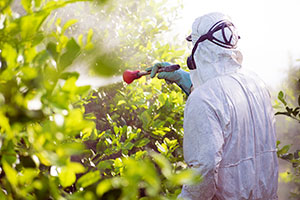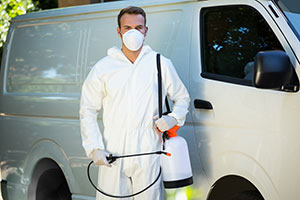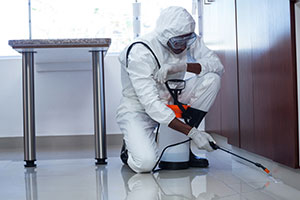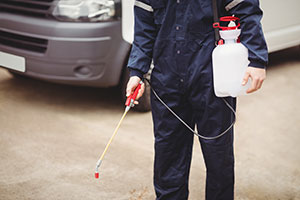
The Hidden Health Risks of Common Home Pests and How to Counteract Them
You've always wanted roommates, right? Well, congratulations! You've got them: cockroaches, rodents, mosquitoes, bedbugs. Unwanted guests that don't just snack on your leftovers, but also pose serious health risks.
Don't worry; we're here to help you understand these risks and show you how to evict these pesky intruders for good.
Welcome to your guide on navigating the hidden health hazards of common home pests and effectively showing them the door.
Identifying Common Home Pests
Before you can tackle any potential health risks, you'll first need to identify the numerous common pests that may have infiltrated your home. It's a task that requires diligence and a keen eye, but don't worry, you're not alone in this. We're in this together, and we'll help guide you through the process.
One of the most common pests that might be lurking in your home is the cockroach. It's an unwelcome sight, but its presence can't be ignored. They're not just unsightly, they can carry bacteria and diseases, too.
Don't forget about rodents like rats and mice. These creatures are known for causing damage to your property, but they can also spread diseases.
Then there are bed bugs, which may not spread diseases but can cause skin irritation and allergic reactions. Spiders, too, can pose a risk, especially those that are venomous.
Insects like flies and mosquitoes are more than just annoying. They can carry diseases that can pose serious health risks. Termites, while not a direct health risk, can cause significant damage to your home's structure.
Identifying these pests is the first step, but remember, it's a step you don't have to take alone. It's part of our shared journey towards a safer, healthier home. You're part of a community that cares, that's here to support you through each stage of this process. So, keep your eyes open, stay alert, but remember - you're not alone in this. We're here with you, every step of the way.
Health Risks of Cockroaches
Now, let's delve into the health risks you might face if your home is invaded by cockroaches. These pesky creatures are more than just a nuisance; they can pose significant health risks to you and your loved ones.
First off, cockroaches are known to be carriers of various bacteria and pathogens that can lead to diseases. They scuttle around in dirty places, picking up germs, which they then spread around your home. This can result in food poisoning, diarrhea, and other gastrointestinal troubles.
Next, cockroaches' droppings, skin sheddings, and even their dead bodies can cause severe allergic reactions. These allergens are particularly harmful to kids and can lead to skin rashes, eye irritations, and nasal congestion. In extreme cases, they can even trigger asthma attacks.
Lastly, the psychological impact of having cockroaches in your home shouldn't be underestimated. The sight of these creepy crawlers can cause stress, anxiety, and sleepless nights. This can take a toll on your mental health and overall well-being.
So, how can you counteract these risks? Keep your home clean and free from food particles that might attract these pests. Seal off possible entry points, like cracks and crevices. If the infestation is severe, you may need to call in professional pest control services.
Dangers Associated With Rodents
Just as cockroaches pose a threat to your health, rodents, too, carry their own set of risks you should be aware of. As part of our community, it's crucial that we share this knowledge to protect our homes and loved ones. Mice and rats are common pests that can bring about a host of health issues.
Firstly, rodents are carriers of various diseases. They can spread these through their droppings, urine, and saliva. Hantavirus, salmonellosis, and rat-bite fever are just a few examples. Symptoms can range from mild discomfort to severe, life-threatening conditions. It's not a risk you'd want to take lightly.
Secondly, rodents can trigger allergies and worsen asthma symptoms, especially in children. Their droppings, dander, and even the dust from their nests can cause sneezing, itching, and difficulty breathing. It's an invisible threat that could impact your family's quality of life, and we don't want that for our community.
Lastly, let's not forget the physical damage rodents can do to our homes. Their gnawing can cause structural harm and even pose a fire risk if they chew through electrical wires. It's a danger that can hit us where we live, literally.
The good news is, we're all in this together. There are steps we can take to prevent these risks. Keep your house clean, seal up any possible entry points, and promptly deal with any signs of infestation. Together, we can keep our homes safe and healthy.
Mosquitoes and Disease Transmission
Your backyard's buzzing mosquitoes aren't just an annoyance, they're carriers of dangerous diseases that can severely impact your health. These tiny pests are like miniature, flying syringes, injecting their saliva into your bloodstream and potentially transmitting harmful pathogens at the same time.
Let's get familiar with the diseases they can transmit. You've probably heard of Zika, Dengue, and West Nile virus, among others. These diseases don't just cause discomfort; they can lead to severe health complications like neurological disorders or even death. They're not just 'someone else's problem' either; mosquitoes don't discriminate, and these diseases can affect anyone, anywhere, provided the right species of mosquito is present.
The good news is, you're not powerless against these pests. There are measures you can take to protect yourself and your loved ones. Start by eliminating standing water around your home where mosquitoes breed. This can be as simple as emptying buckets or planters after a rainstorm. Installing screens on windows and doors can also help keep mosquitoes out of your home.
When you're outside, wear long-sleeved shirts and pants, and use insect repellent to deter mosquitoes. These are simple steps, but they can make a big difference in reducing your risk of mosquito-borne diseases.
The Unseen Threat of Bedbugs
While you mightn't see them, bedbugs pose a significant health threat lurking in the comfort of your own home. Small, sneaky, and nocturnal, these tiny invaders can cause more harm than you might think, and they're not just a problem for those with unkempt homes. They're an issue for everyone, from urban apartments to suburban houses.
Bedbugs are known for causing itchy, red bites that can lead to skin infections if you can't resist scratching. But that's not all. They can also lead to allergic reactions, and in severe cases, anemia from loss of blood. You might also experience sleep disruption due to their night-time feeding habits, leading to chronic fatigue and stress.
But don't panic, you're not alone in this fight. To counteract this hidden threat, you've got to be proactive. First, you should know the signs of their presence, such as tiny blood stains or fecal spots on bedding. If you suspect an infestation, don't hesitate to call in professionals. They can effectively eliminate these pests without causing additional harm to your home or health.
Preventive measures are also key. Regularly washing and heat-drying your bed linens can kill any lingering bedbugs or eggs. Also, be cautious while traveling, as these pests can easily hitch a ride on luggage or clothing.
Effective Pest Control Methods
Battling these tiny invaders requires understanding effective pest control methods, which are key in maintaining not just a clean home, but also a healthy one. You're not alone in this fight. We're part of a community of homeowners dealing with the same challenge. Let's explore some proven strategies together:
Prevention is Better Than Cure
- Maintain cleanliness: Regular house cleaning, vacuuming, and decluttering can keep pests at bay.
- Seal entry points: Inspect for cracks and gaps and seal them to prevent pests from entering your home.
Safe and Effective Treatment Options
- Non-chemical methods: Traps and baits can be effective for smaller infestations. Use heat or cold treatments for bed bugs.
- Pesticides: If the infestation is severe, consider using approved pesticides. Always follow instructions and prioritize safety.
Remember, it's not just about extermination; it's a holistic approach to a pest-free home. If you're dealing with a pest problem that's too big to handle, don't hesitate to reach out to professional pest control services. They're equipped with the knowledge and tools to effectively eliminate pests and prevent future infestations.
Knowing these methods, you're not just a homeowner but a guardian of your home's health. It's an ongoing battle but remember, you're not alone. Together, we can keep our homes safe and pest-free. So, let's stay vigilant, act promptly, and share our experiences to help others in our community.
Maintaining a Pest-Free Home
Now that you're armed with effective pest control strategies, let's shift our focus to maintaining a pest-free environment in your home. Remember, you're part of a community of vigilant homeowners who understand the importance of safeguarding their homes against pests.
Firstly, practice cleanliness. Just like us, pests need food and water to survive. By keeping your home clean, you're cutting off their food supply, making your home less appealing to them. Regularly take out the trash, clean up spills immediately, and don't leave dirty dishes in the sink overnight.
Next, seal any pest entry points. Small crevices and cracks in your home can serve as doorways for pests. Regularly inspect your home for these potential entry points and seal them promptly.
Thirdly, maintain your yard. Overgrown vegetation can provide shelter for pests and act as a stepping stone for them to enter your home. Keep your grass cut short, trim overhanging branches, and remove any stagnant water.
Lastly, consider routine professional inspections. Even with your best efforts, some pests can remain hidden. Regular inspections by pest control professionals can help detect and eliminate these hidden pests before they become a problem.
Key Takeaways
- Cockroaches carry bacteria and diseases, causing food poisoning and allergies.
- Rodents spread diseases, trigger allergies, and cause property damage.
- Mosquitoes can carry diseases that pose health risks.
- Bed bugs cause skin irritation, allergic reactions, anemia, and disrupt sleep.




